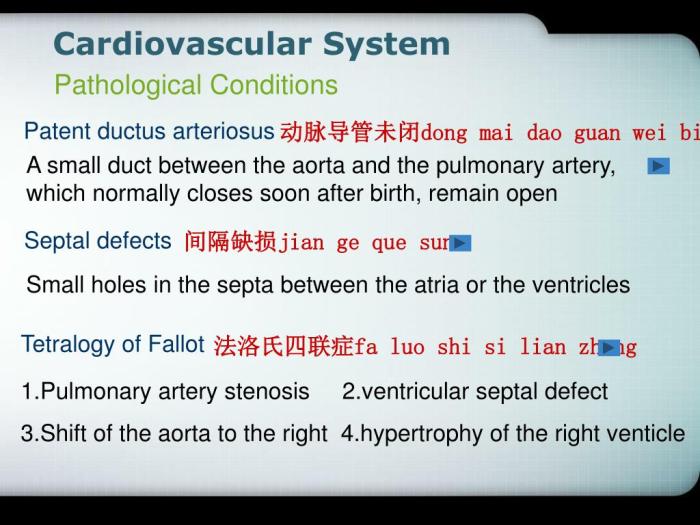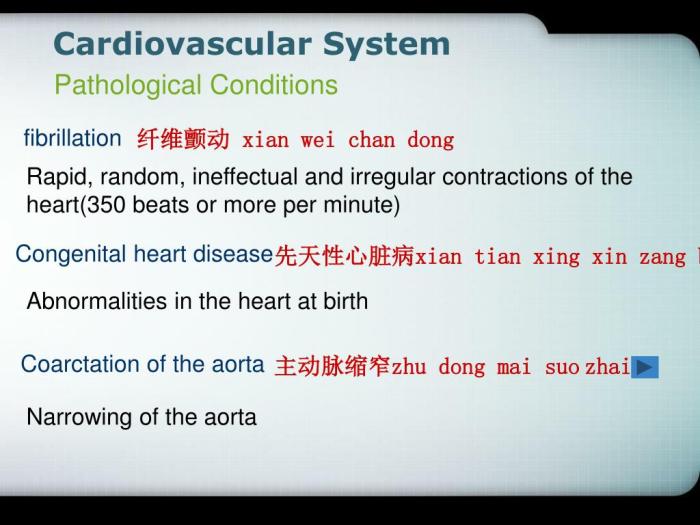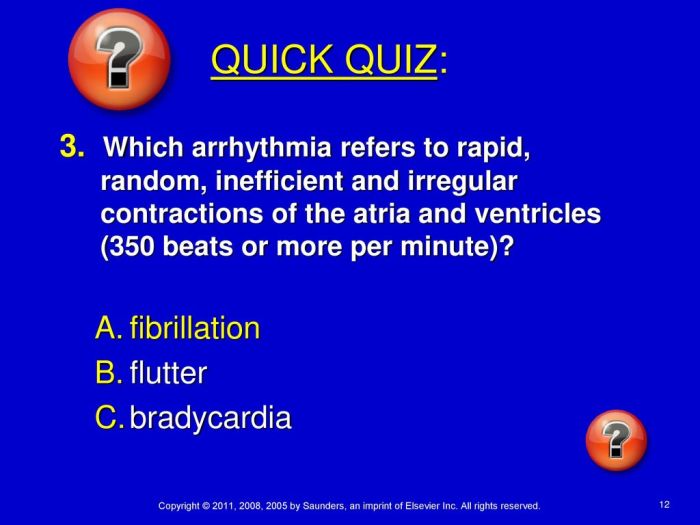Rapid random ineffectual and irregular contractions of the heart, a condition characterized by disorganized and ineffective heartbeats, can significantly impact cardiovascular health. This article delves into the causes, symptoms, diagnosis, treatment, and potential complications associated with this condition, providing a comprehensive overview for healthcare professionals and individuals seeking information.
The irregular and unpredictable nature of rapid random ineffectual and irregular contractions of the heart can lead to a range of symptoms, including palpitations, shortness of breath, dizziness, and fatigue. Understanding the underlying causes and risk factors associated with this condition is crucial for effective management and prevention.
Rapid Random Ineffectual and Irregular Contractions of the Heart

Rapid random ineffectual and irregular contractions of the heart, commonly known as atrial fibrillation (AFib), is a heart condition characterized by rapid and irregular electrical signals in the heart’s upper chambers, the atria. These irregular contractions disrupt the normal pumping action of the heart, leading to inefficient blood flow and a range of symptoms.AFib
is a common arrhythmia, affecting approximately 2.7 million people in the United States. It is more prevalent in older adults, and its incidence increases with age. The condition can be intermittent or persistent, with varying degrees of severity.
Causes and Risk Factors

The exact cause of AFib is often unknown, but several factors can increase the risk of developing the condition. These include:
- Heart disease, such as coronary artery disease or heart valve disease
- High blood pressure
- Diabetes
- Obesity
- Sleep apnea
- Excessive alcohol consumption
- Thyroid problems
- Lung disease
Symptoms and Diagnosis

Symptoms of AFib can vary widely, depending on the individual and the severity of the condition. Common symptoms include:
- Palpitations or a racing heartbeat
- Chest pain or discomfort
- Shortness of breath
- Fatigue
- Lightheadedness or dizziness
- Confusion
AFib can be diagnosed through an electrocardiogram (ECG), which records the heart’s electrical activity. An ECG can detect the irregular heartbeats characteristic of AFib. In some cases, additional tests, such as an echocardiogram or Holter monitor, may be necessary to evaluate the heart’s structure and function.
Treatment and Management
Treatment for AFib aims to control the heart rate, prevent blood clots, and reduce the risk of complications. Medications, such as antiarrhythmic drugs and anticoagulants, are commonly used. In some cases, catheter ablation or surgical procedures may be considered to correct the irregular heartbeats.Lifestyle
modifications can also play a role in managing AFib. These include:
- Maintaining a healthy weight
- Regular exercise
- Limiting alcohol consumption
- Getting enough sleep
- Managing stress
Complications and Prognosis: Rapid Random Ineffectual And Irregular Contractions Of The Heart
Untreated AFib can lead to several complications, including:
- Stroke
- Heart failure
- Cognitive impairment
- Death
The prognosis for AFib varies depending on the individual’s overall health, the severity of the condition, and the effectiveness of treatment. With proper management, most people with AFib can live full and active lives.
Lifestyle Modifications and Prevention
While there is no sure way to prevent AFib, certain lifestyle modifications may help reduce the risk of developing the condition or improve its management. These include:
- Eating a heart-healthy diet
- Maintaining a healthy weight
- Getting regular exercise
- Limiting alcohol consumption
- Quitting smoking
- Managing stress
Top FAQs
What are the most common symptoms of rapid random ineffectual and irregular contractions of the heart?
Palpitations, shortness of breath, dizziness, fatigue, and chest pain are common symptoms.
What are the potential complications of rapid random ineffectual and irregular contractions of the heart?
Complications may include heart failure, stroke, and sudden cardiac arrest.
How is rapid random ineffectual and irregular contractions of the heart diagnosed?
Diagnosis typically involves an electrocardiogram (ECG) and other tests to assess heart rhythm and function.